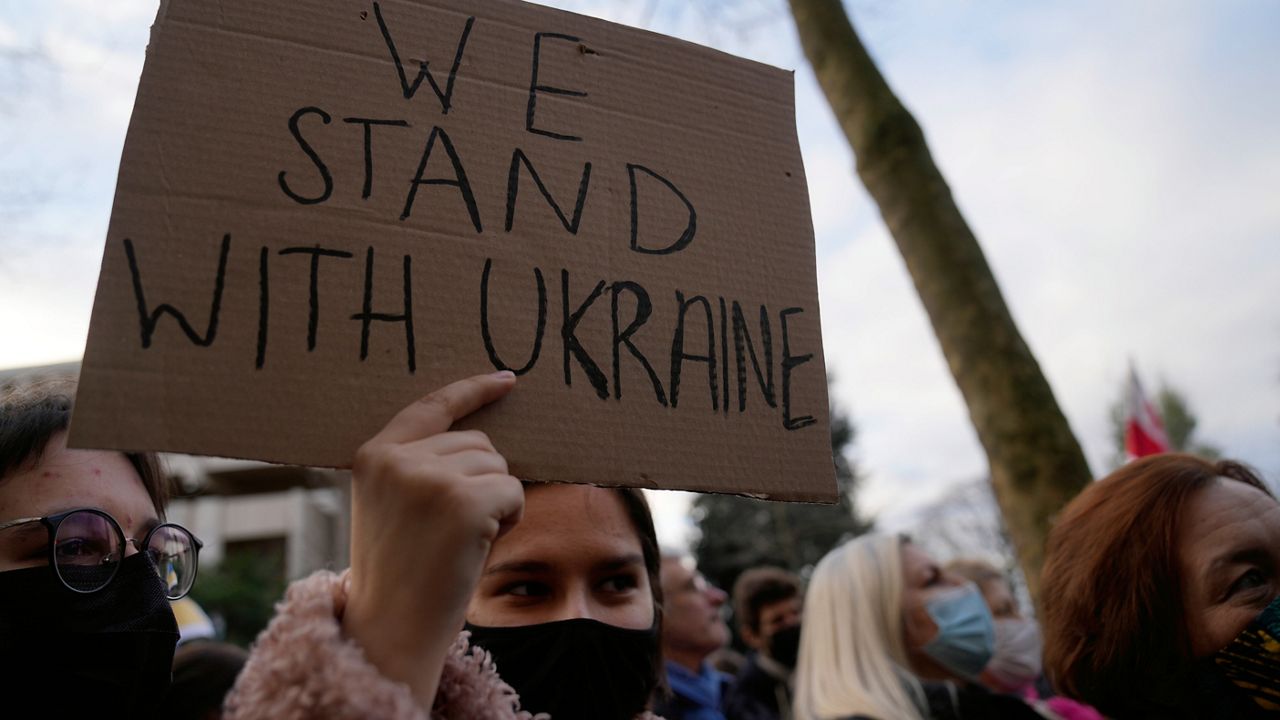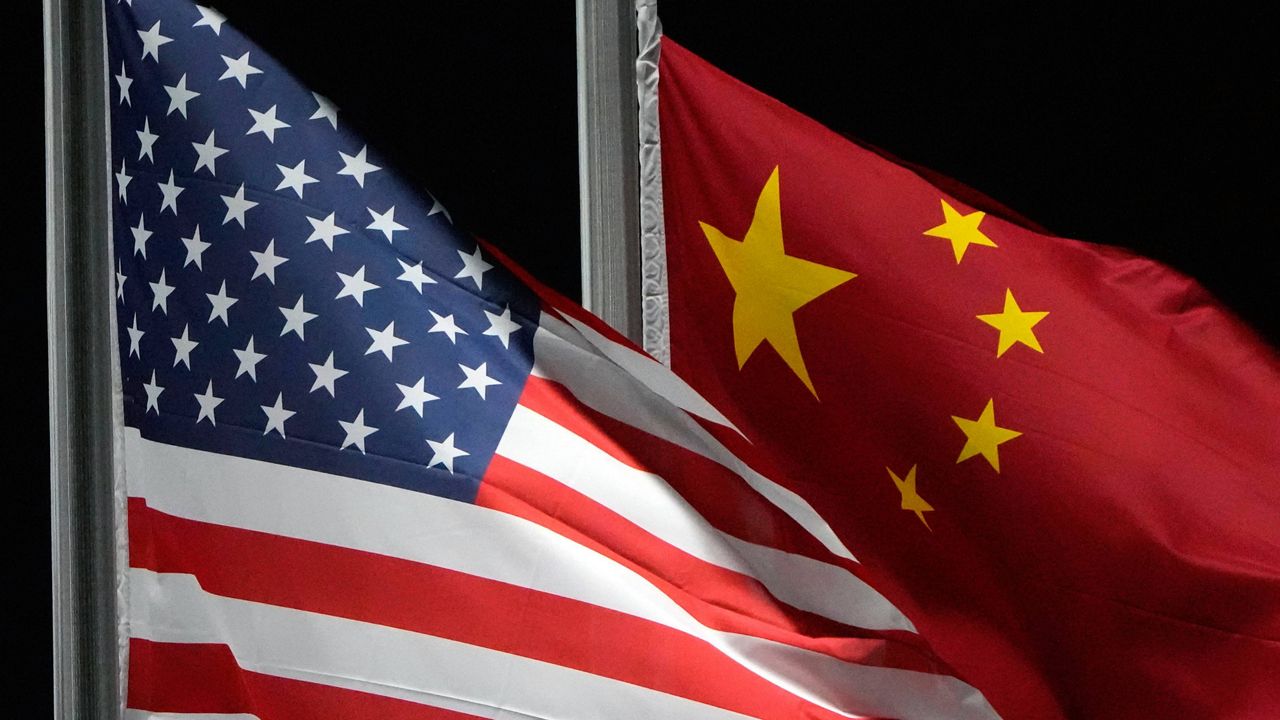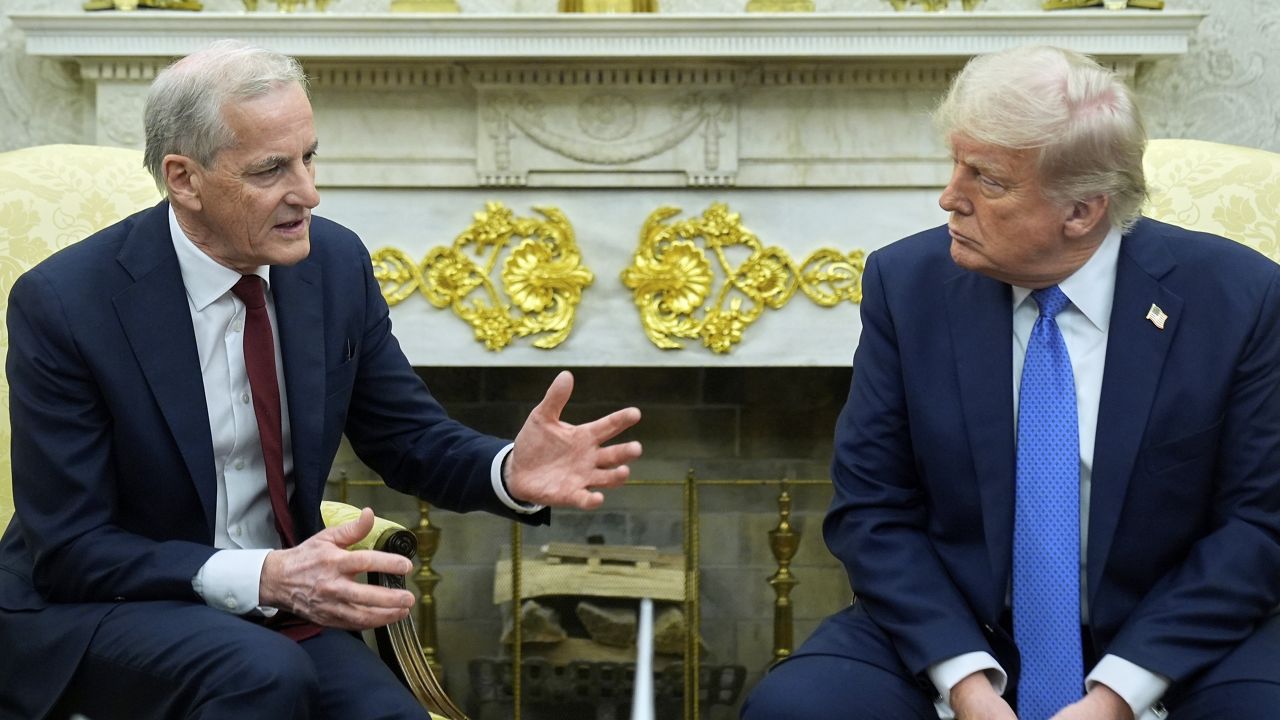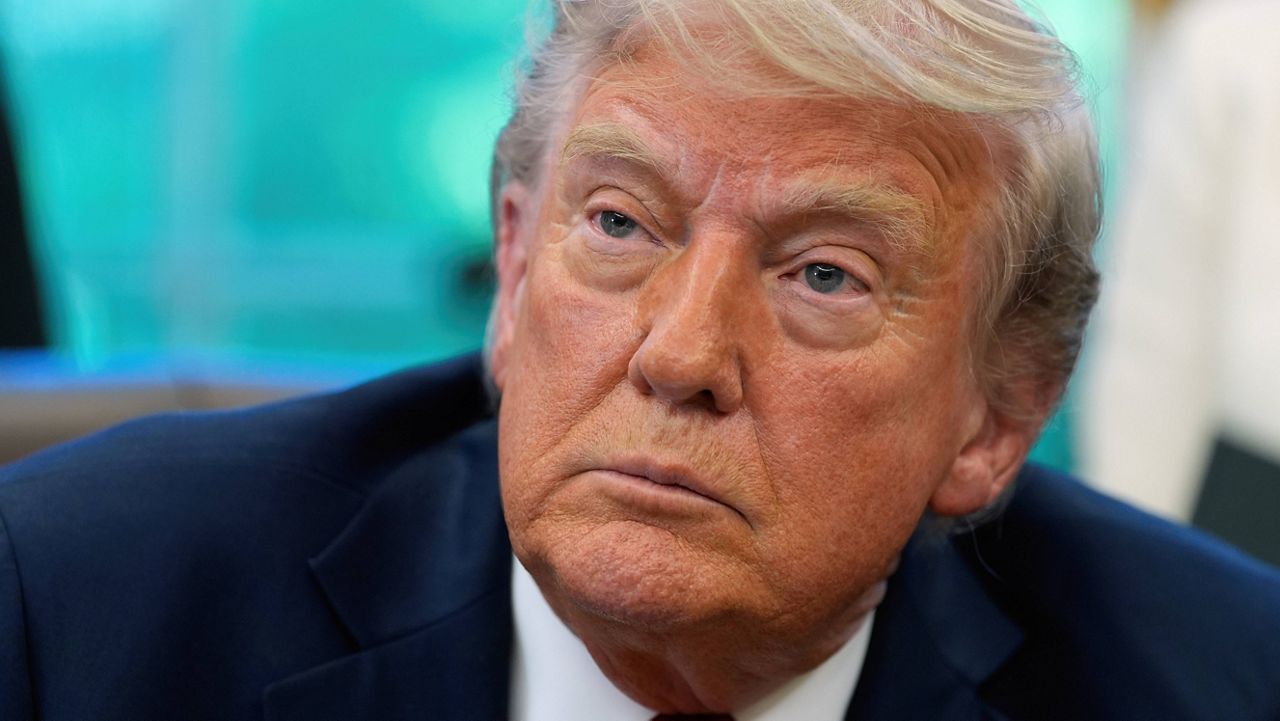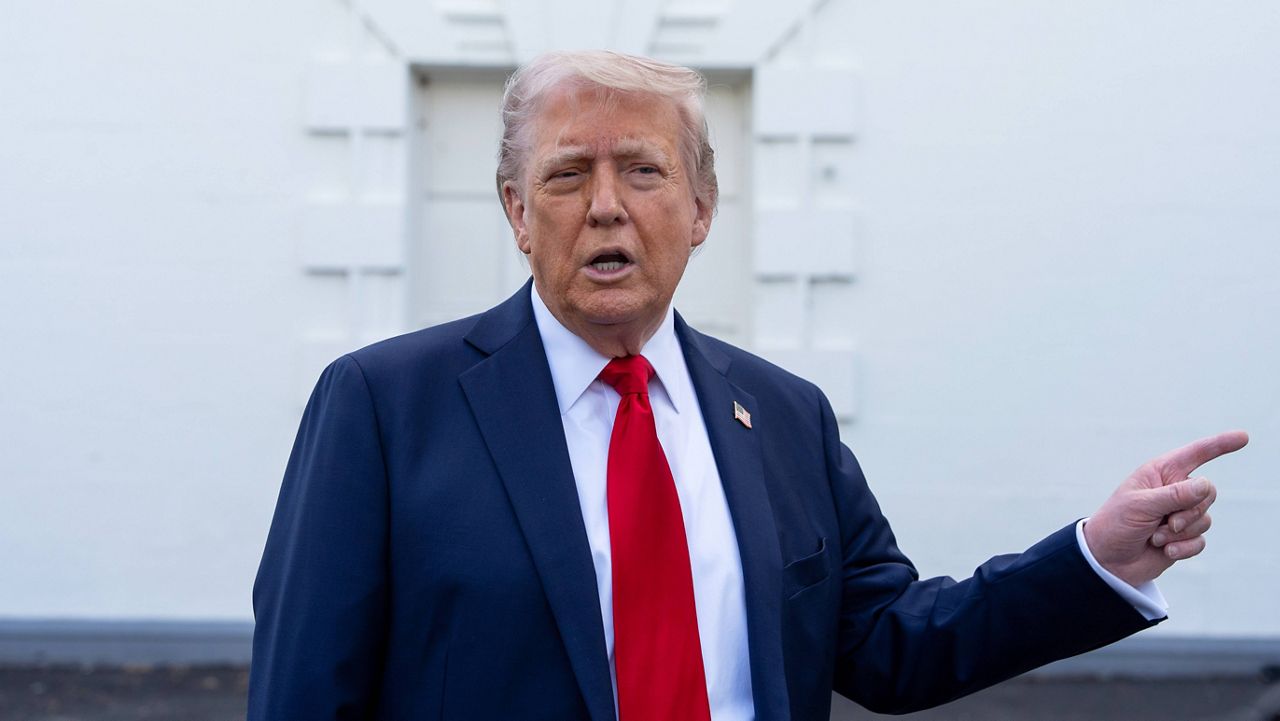From a hastily convened meeting of the United Nations Security Council to capitals around the world, leaders have condemned Russian President Vladimir Putin’s recognition of two pro-Russia regions in eastern Ukraine as independent and his order to send troops there.
What You Need To Know
- World leaders are making another diplomatic push in hopes of preventing a Russian invasion of Ukraine, even as heavy shelling continues in Ukraine's east
- The White House said President Joe Biden had agreed "in principle" to meeting with Russian President Vladimir Putin if he refrains from launching an assault on his neighbor that U.S. officials say appears increasingly likely
- Meanwhile, there has been heavy shelling along the tense line of contact between Ukrainian forces and Russian-backed separatist rebels in Ukraine's eastern industrial heartland of Donbas
- Ukraine says its positions were shelled 80 times Sunday and eight times early Monday but that it was not firing back
They also warned of a global fallout from the crisis over Ukraine, which was evident Tuesday as oil prices rose, stock markets fell, and the U.K. slapped sanctions on Russian banks.
Here’s a glance at the top things to know about the conflict over Ukraine and the security crisis in Eastern Europe:
The White House is calling Russia’s troop deployments in eastern Ukraine an “invasion” after initially being hesitant to use the term. Around the world, leaders condemned Putin and prepared to hit his administration with sanctions.
“We think this is, yes, the beginning of an invasion, Russia’s latest invasion into Ukraine,” said Jon Finer, principal deputy national security adviser. “An invasion is an invasion and that is what is under way.”
The Biden administration resisted initially calling the deployment of troops an invasion because the White House wanted to see what Russia was actually going to do, but that changed after assessing Russian troop movements, said an official who spoke on the condition of anonymity to discuss internal deliberations.
U.K. officials, including U.K. Defense Secretary Ben Wallace, noted that it’s not Russia’s first invasion of Ukraine. Russia annexed Ukraine’s Crimean Peninsula in 2014 and has previously operated in eastern Ukraine.
“Russia has already invaded Ukraine. They did it in 2014, occupied illegally Crimea and Donbas. This is a further invasion of their sovereign territory. No one recognizes the legitimacy of the occupation and annexation of Crimea. Not even the Chinese,” Wallace said.
The White House issued an executive order Monday to prohibit U.S. investment and trade in the separatist regions and Britain slapped sanctions Tuesday on Russian banks. Additional measures — likely sanctions — were to be announced later Tuesday by the U.S. and the European Union.
Convoys of armored vehicles were seen rolling across the Ukraine’s separatist-controlled territories late Monday. It wasn’t immediately clear if they were Russian but NATO chief Jens Stoltenberg said Tuesday that “we saw last night that further Russian troops moved into the Donbas into parts of Donetsk and Lugansk.”
A vaguely worded decree signed by Putin late Monday cast his order for troops in the separatist territories as an effort to “maintain peace.”
On Tuesday, Russian lawmakers Putin permission to use military force outside the country — a move that could presage a broader attack on Ukraine after the U.S. said an invasion was already underway there.
Russian officials haven’t yet acknowledged any troop deployments but Vladislav Brig, a member of the separatist local council in Donetsk, told reporters that Russian troops already had moved in, taking up positions in the region’s north and west.
British Prime Minister Boris Johnson told U.K. lawmakers that Russian tanks were already in eastern Ukraine.
“Russian tanks and armored personnel carriers” have been spotted in the eastern Ukraine regions recognized by Putin, Johnson said, adding that amounts to “a renewed invasion” of Ukraine.
Ukrainian President Volodymyr Zelenskyy sought to project calm, telling the country in an address overnight: “We are not afraid of anyone or anything.”
Protesters, some draped in Ukrainian flags, gathered outside the Russian Embassy in Kyiv. One held up a sign that read: “We choose Europe not Russia.”
NATO Secretary-General Jens Stoltenberg says Russia is taking military action against Ukraine and he condemned Moscow’s decision to recognize separatist areas of southeast Ukraine as independent.
“Moscow has now moved from covert attempts to destabilize Ukraine to overt military action,” Stoltenberg told reporters Tuesday.
Asked whether Russia’s actions constitute an invasion, he said: “Russia has already invaded Ukraine, they invaded Ukraine back in 2014,” when Russia annexed the Crimean Peninsula. He added that “what we see now is that a country that is already invaded is suffering further invasion.”
Stoltenberg said NATO allies have more than 100 jet planes on high alert and more than 120 warships ready at sea from the high north to the Mediterranean Sea.
He said the NATO response force remains on high readiness but is not yet being deployed, although some allies are moving troops, ships and planes into the Baltic states and near the Black Sea to defend NATO allies.
British Prime Minister Boris Johnson says his government is slapping sanctions on five Russian banks and three wealthy individuals over Russia’s latest military moves on Ukraine.
Johnson told lawmakers that sanctions would hit Rossiya Bank, IS Bank, General Bank, Promsvyazbank and the Black Sea Bank.
He said three Russian oligarchs with interests in energy and infrastructure will have their assets frozen and be banned from traveling to the U.K.
Johnson accused Putin of “establishing the pretext for a full-scale offensive” against Ukraine and said “further powerful sanctions” would follow, if that happened.
Top European Union officials said the bloc is set to impose sanctions on several Russian officials and banks financing the Russian armed forces as part of moves to limit Moscow’s access to EU capital and financial markets.
The actions, to be taken in the wake of Russia’s decision to recognize the independence of two separatist regions in southeast Ukraine and to deploy troops there, would “target those who were involved in the illegal decision,” an EU statement said.
The EU sanctions would also target trade from the two breakaway regions.
EU foreign ministers are meeting later Tuesday in Paris to discuss the measures.
Meanwhile, German Chancellor Olaf Scholz said the country has taken steps to halt the process of certifying the Nord Stream 2 gas pipeline from Russia, as he slammed Putin’s actions on Ukraine as a “serious break of international law.”
The decision is a significant move for the German government, which had long resisted pulling the plug on the project despite pressure from the United States and some European countries to do so.
Scholz told reporters in Berlin it was necessary to “send a clear signal to Moscow that such actions won’t remain without consequences.” He said it is now “up to the international community to react to this one-sided, incomprehensible and unjustified action by the Russian president.
Washington has for years argued that building another pipeline bringing natural gas from Russia to Germany increases Europe’s reliance on Russian energy supplies.
With an estimated 150,000 Russian troops massed on three sides of Ukraine, the U.S. warned last week that Putin had already decided to invade its neighbor. Still, President Joe Biden and Putin tentatively agreed to a meeting brokered by French President Emmanuel Macron in a last-ditch effort to avoid war.
Kremlin spokesman Dmitry Peskov, though, said “it’s premature to talk about specific plans for a summit.”
Ukrainian Foreign Minister Dmytro Kuleba was in Washington on Tuesday to meet with U.S. Secretary of State Antony Blinken.
Ukraine’s United Nations ambassador, Sergiy Kyslytsya, said during a Monday night Security Council meeting: “We are committed to a political diplomatic settlement and do not succumb to provocations.”





